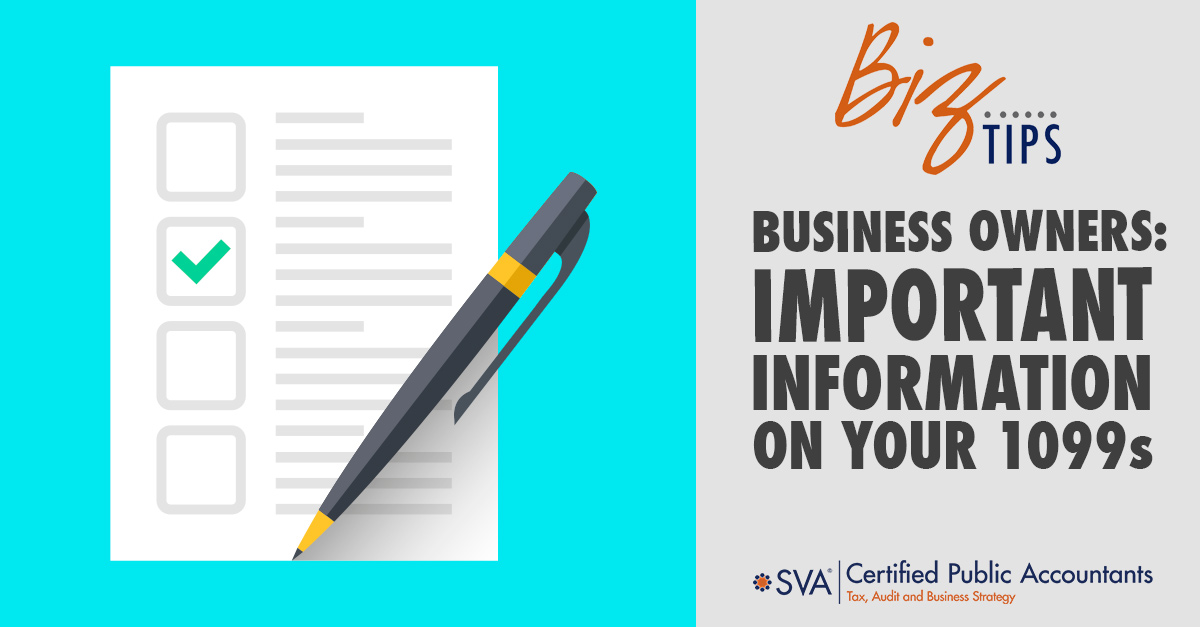| Highlights: |
- Outlines key IRS requirements and deadlines for issuing common 1099 forms (especially 1099-NEC and 1099-MISC) to contractors and vendors.
- Emphasizes collecting accurate vendor info via Form W-9 and maintaining proper records to meet filing obligations and avoid IRS penalties.
- Helps business owners prepare 1099s before tax season by explaining who needs them and why timely compliance matters.
|
The importance of having 1099s ready at tax time cannot be overstated for business owners. 1099 forms are an important part of filing taxes for many businesses and self-employed individuals.
1099-NEC
Although there are several different types of 1099 tax forms, the 1099-NEC is the most common form that a business may need to issue.
This 1099 form is used to report income that is not earned as salary or wages to the Internal Revenue Service (IRS). This includes income earned by independent contractors, freelancers, and LLCs.
Businesses that pay at least $600 to a non-employee for services performed during the year have a requirement to file and issue a 1099-NEC to that non-employee.
There is an exception for this filing requirement; in general, if the non-employee is a corporation, a 1099 is not required. Of course, there is also an exception to this exception: businesses that pay an attorney for legal services will still need to issue a 1099 to the attorney regardless of the attorney’s corporate status.
1099-MISC
Another type of 1099 form that a business may need to issue is the 1099-MISC. This form reports other types of payments of at least $600 (outside of nonemployee compensation) including payments or rents, prizes and awards.
If your business pays at least $600 in rent to a non-corporate recipient, it has a requirement to file a 1099-MISC.
1099 Requirements
As a business owner, it is important to understand the requirements and deadlines for issuing 1099s, as failure to do so can result in penalties and fines.
The IRS requires that all 1099-NECs be issued to the recipient and filed with the IRS by January 31st. 1099-MISCs also need to be issued to the recipient by January 31st and they need to be filed with IRS by February 28th (or March 31st if filing electronically).
Reasons to File 1099
One of the main reasons that business owners need to file 1099s is to help ensure compliance with tax laws.
The IRS uses the information reported on 1099s to cross-check against the income reported by the recipient on their tax return. If there is a discrepancy, the IRS may flag it for further investigation, which can lead to penalties and fines for either the recipient or the business owner.
(Download Video Transcript)
What Steps Can Your Business Take to Help With the Issuance of 1099s?
First, keep clean records of:
- the vendors that provided services to your business throughout the year and
- how much your business paid for those services.
Second, request your vendor fills out Form W-9 when you hire them to provide services.
In order to issue a 1099 you will need to know the following information about the recipient:
- Legal name
- Type of entity
- EIN or Social Security Number
- Address
You can obtain this information by requesting any freelancer, contractor or business you hire provides you with a completed Form W-9.
It is recommended that you get a W-9 from your vendor when they first perform the work for your business, rather than waiting until January to try and track them down.
By obtaining a W-9 up front, your business will already have their information on file and can issue them a 1099 in January without having to contact them again.
Be Prepared
Having 1099 information ready at tax time is crucial for business owners and can save on headaches and stress during an already stressful time of the year.
Business owners should ensure that they understand the requirements and deadlines for issuing 1099s, and that they have all of the necessary information in order before the deadlines.
© 2023 SVA Certified Public Accountants

